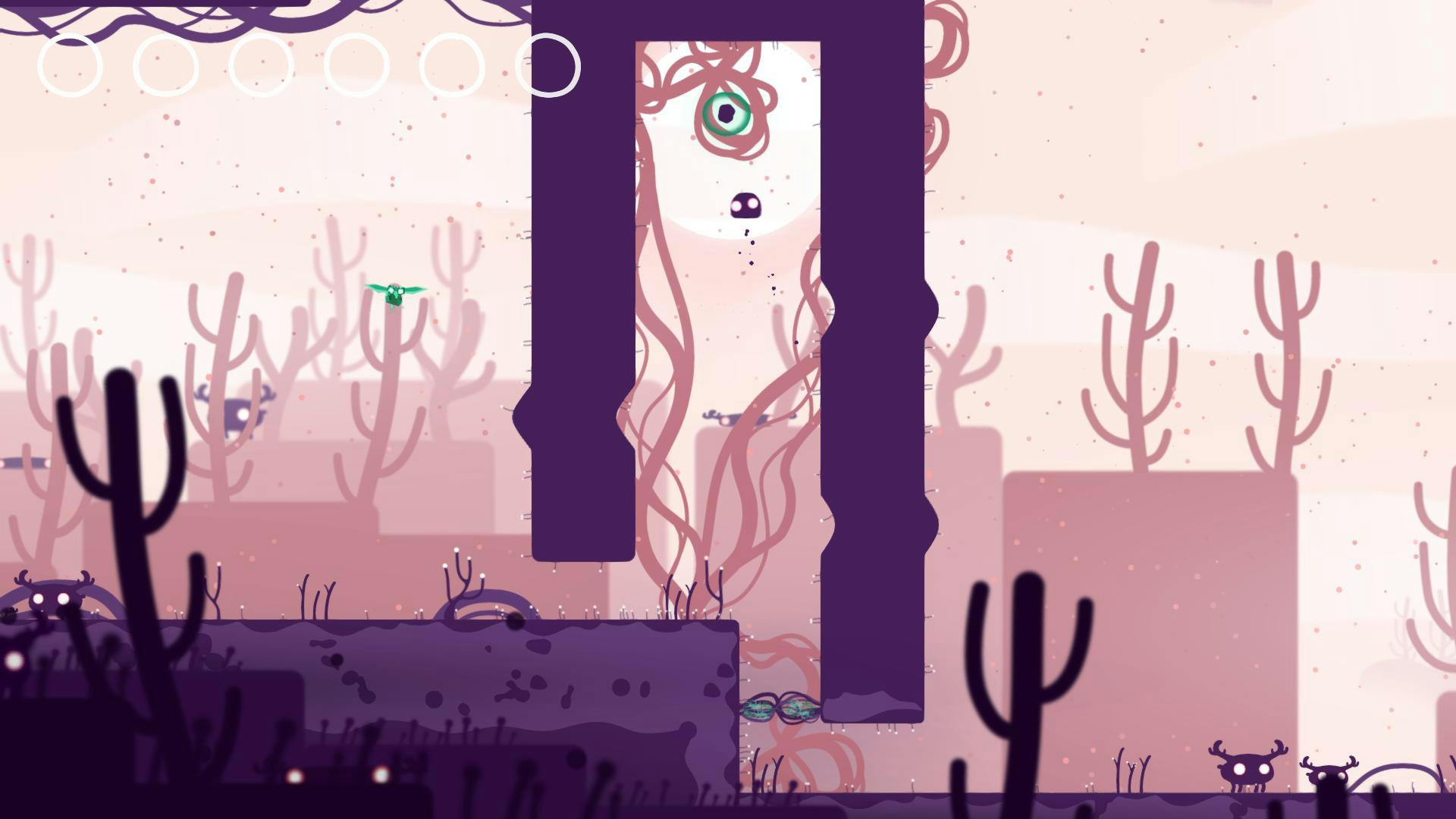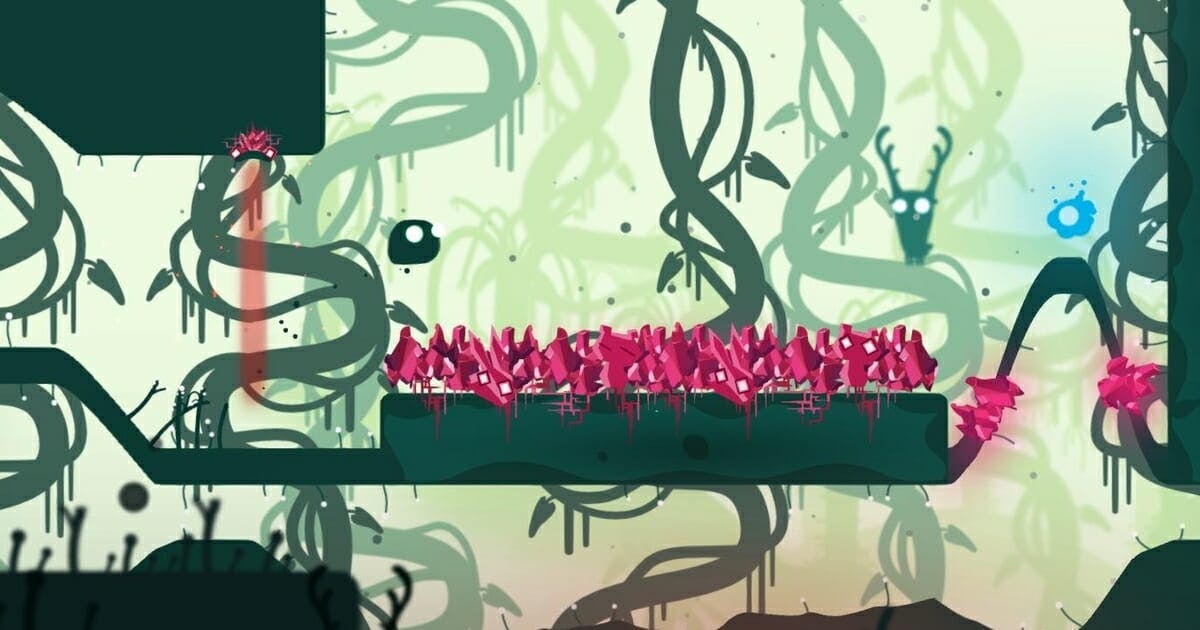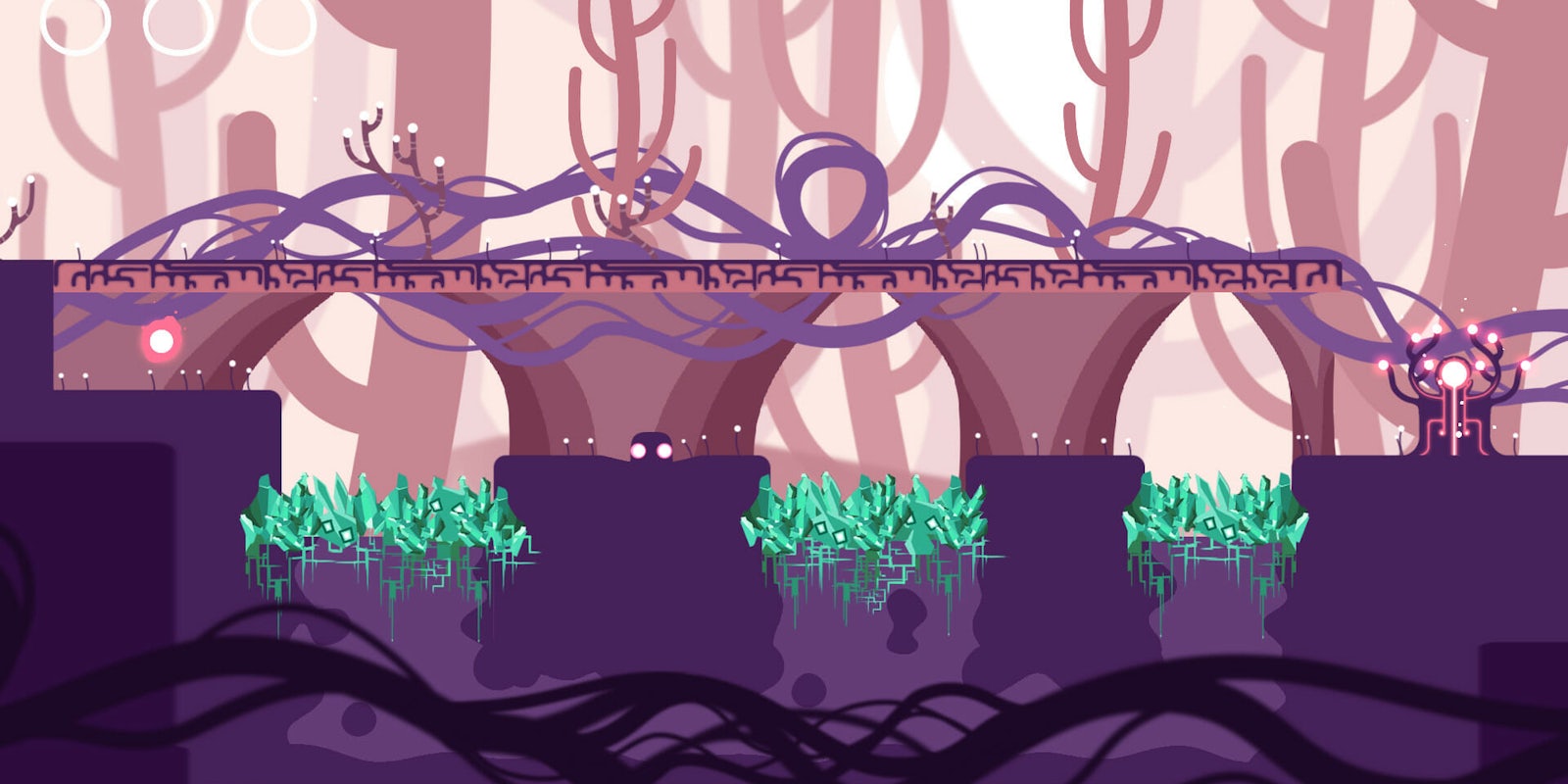Many experienced video game players probably cut their teeth on a platformer in the earliest days of their habit. The simple, easily iterable formula makes for accessible and straightforward experiences. Often coupled with colorful visuals and upbeat soundtracks, the genre represents a gold standard of games that are frequently held up as beloved classics.
In platforming games, the player’s objective is simple. Move forward on the stage set before you, avoiding obstacles using jumps, dashes, and other forms of acrobatics.
It’s easy to recognize these elements in series like Mario, Sonic, and Mega Man, as well as the countless properties they have inspired. Semblance may seem like yet another of these games, but it benefits from building its core mechanics around an exact inversion of established tropes.
In Semblance, you guide a bug-eyed blob through a world of mysterious, mystic creatures. The dialogue-free setup is sparse, leaving one to wonder what exactly the nature of this quest is. There are occasional cave paintings and characters that hint at a larger story, but the only driving force is collecting several ambiguous glowing orbs. You’ll do so by hopping and dashing around squishy levels that can be shaped into new pathways toward your goal and away from danger.
South African developer Nyamakop’s first project throws players into a world of malleable structures and objects that aren’t meant to be avoided, but rather toyed with. Instrumental to solving the game’s series of puzzles is the will to slam against walls and shape the answer.

Through a network of luminous trees, players enter stages each filled with a set number of orbs. They don’t all need to be collected to move forward, but each level does hold intrinsic value in learning the nuances of movement and interaction with other elements. For example, early stages cleverly make it so that you can’t advance without first staggering some untouched platforms into a makeshift staircase. Later levels may just assume you’ve already mastered this technique.
While it can feel less precise than ideal, the process of indenting and morphing your surroundings adds variety to the whole experience. It’s easy to get frustrated when (literally) banging your head against a wall, but by sitting back and looking at the whole puzzle, you’ll eventually spot the solution. Likewise, each objective isn’t set on any exact course. While you know where you need to end up, you can often wiggle and squeeze your character to the goal with a dash of ingenuity and some steadfast willpower.

One of the most unique (and welcome) wrinkles Semblance introduces to the puzzle-platformer formula is to de-emphasize combat. There are things that might be called enemies, but they only exist to block certain areas and crush the player upon first touch. The game doesn’t obnoxiously play up these encounters to stir up a rage, or even ask you to think about killing these crystallized creatures. Instead, these sections are used as another way to challenge your thinking, encouraging experimentation and rewarding those who are willing to get creative.
Semblance may offer a relatively story-free experience but there’s so much distinct personality that makes it stand out. With wonderful particle effects and character design, the action always looks great. Nyamakop also brings a solid, diverse range of sounds to pair with the beautiful vistas.
It’s impossible not to recognize the polish and promise held in this short-but-sweet package. Especially as a first project, the game lays a great foundation. Fans of the genre will absolutely have a delightful, worthwhile time with Semblance.
3.5/5
Semblance is available now for PC and Nintendo Switch. This review was published based on a Nintendo Switch copy of the game provided by the publisher.


